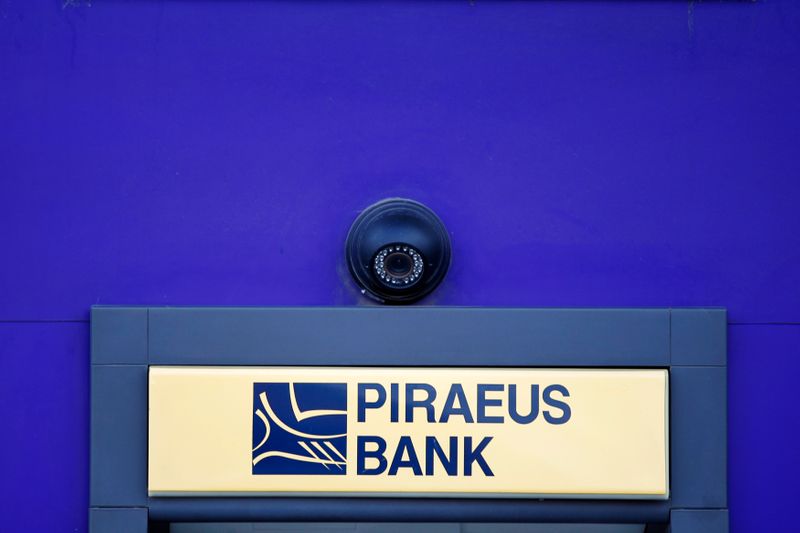ATHENS (Reuters) - Piraeus Bank (AT:BOPr), Greece's largest lender by assets, said on Monday it plans to securitize roughly 7 billion euros ($7.74 billion) of non-performing exposures (NPEs) in 2020.
Greek banks have been working to reduce more than 70 billion euros ($77.32 billion) in soured loans, the legacy of a financial crisis that shrank the country's economy by a quarter.
Piraeus said it aims to cut its NPE ratio to 15% of its total loan book in 2022, from 49% last year, and to a single digit by 2023.
Its NPEs, which include loans which a bank thinks might become non-performing, were 25.7 billion euros at the end of September, from 27.3 billion at the end of 2018.
In an effort to help banks offload up to 30 billion euros of sour loans, the government has set up the so-called Asset Protection Scheme Hercules (HAPS). The plan is similar to Italy's GACS model.

In October, Piraeus Bank announced a deal with Sweden's Intrum (ST:INTRUM) to create a company to service its bad loan portfolio.